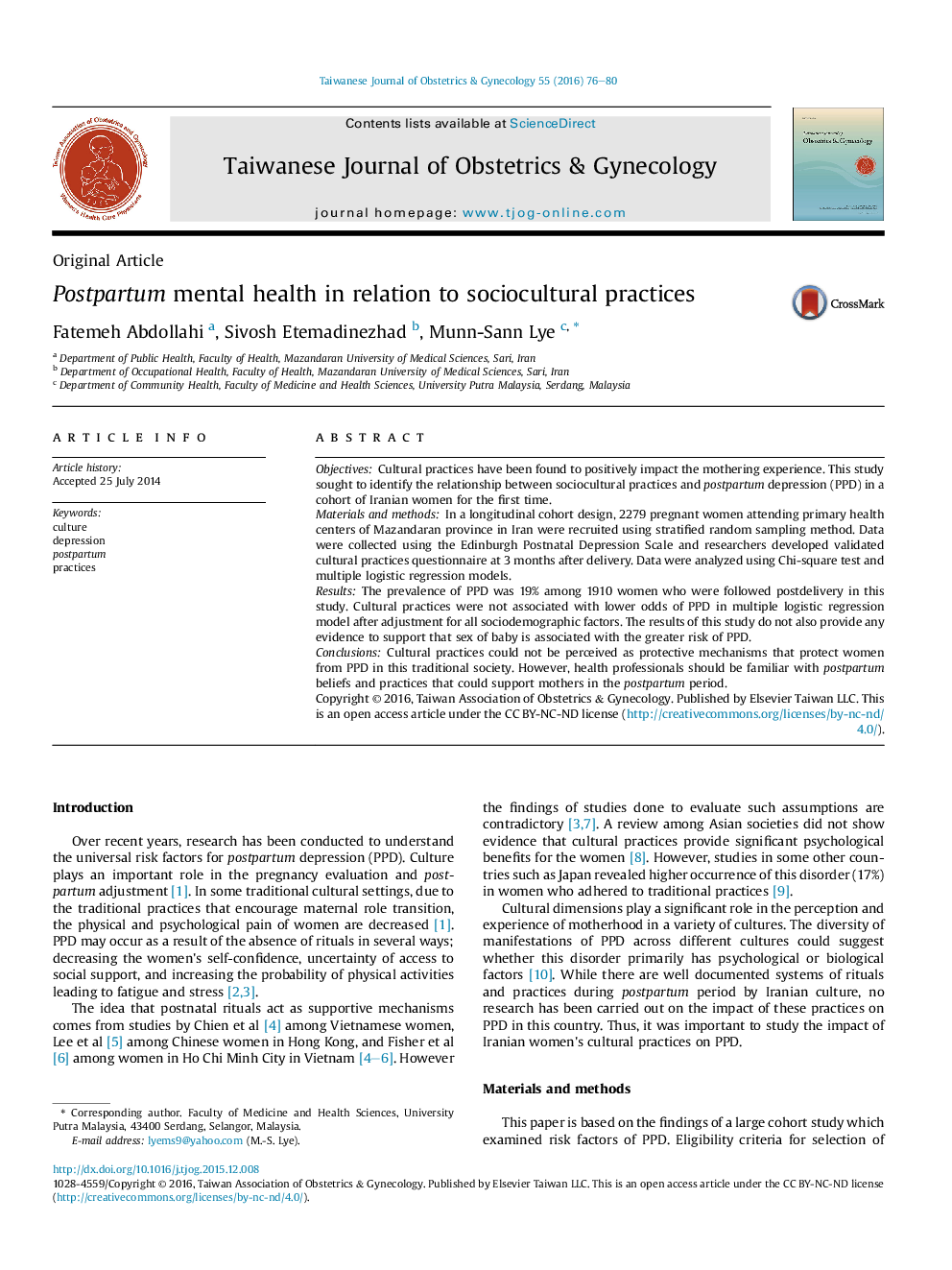| Article ID | Journal | Published Year | Pages | File Type |
|---|---|---|---|---|
| 3975019 | Taiwanese Journal of Obstetrics and Gynecology | 2016 | 5 Pages |
ObjectivesCultural practices have been found to positively impact the mothering experience. This study sought to identify the relationship between sociocultural practices and postpartum depression (PPD) in a cohort of Iranian women for the first time.Materials and methodsIn a longitudinal cohort design, 2279 pregnant women attending primary health centers of Mazandaran province in Iran were recruited using stratified random sampling method. Data were collected using the Edinburgh Postnatal Depression Scale and researchers developed validated cultural practices questionnaire at 3 months after delivery. Data were analyzed using Chi-square test and multiple logistic regression models.ResultsThe prevalence of PPD was 19% among 1910 women who were followed postdelivery in this study. Cultural practices were not associated with lower odds of PPD in multiple logistic regression model after adjustment for all sociodemographic factors. The results of this study do not also provide any evidence to support that sex of baby is associated with the greater risk of PPD.ConclusionsCultural practices could not be perceived as protective mechanisms that protect women from PPD in this traditional society. However, health professionals should be familiar with postpartum beliefs and practices that could support mothers in the postpartum period.
